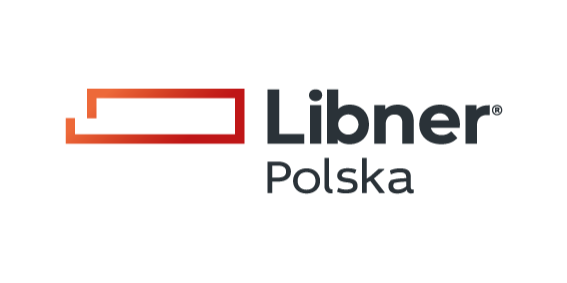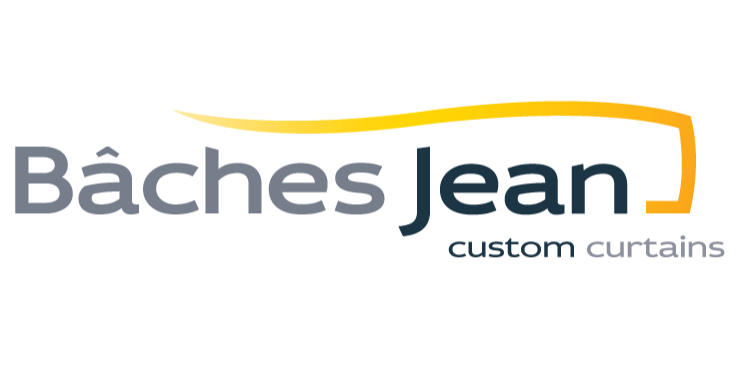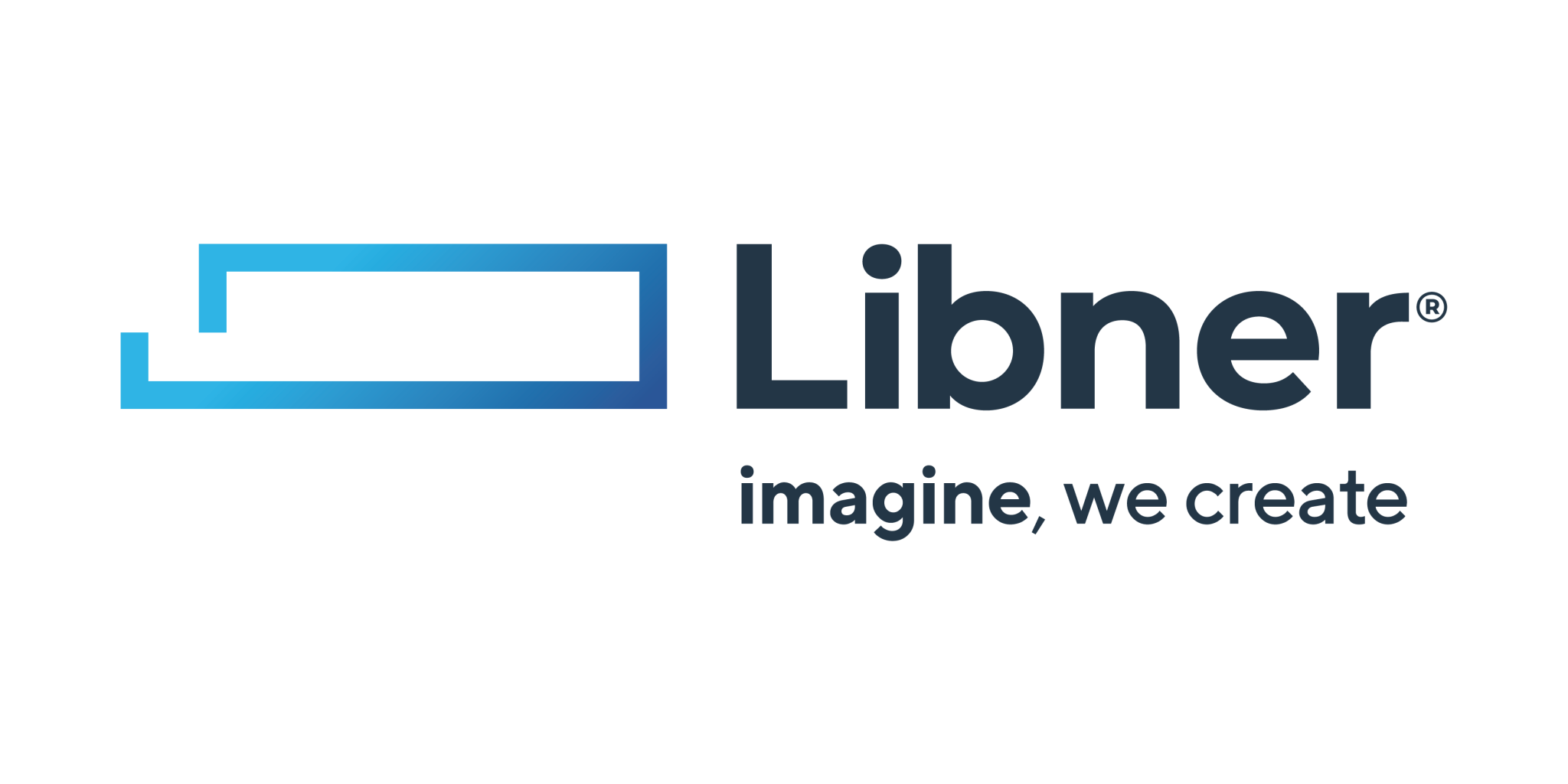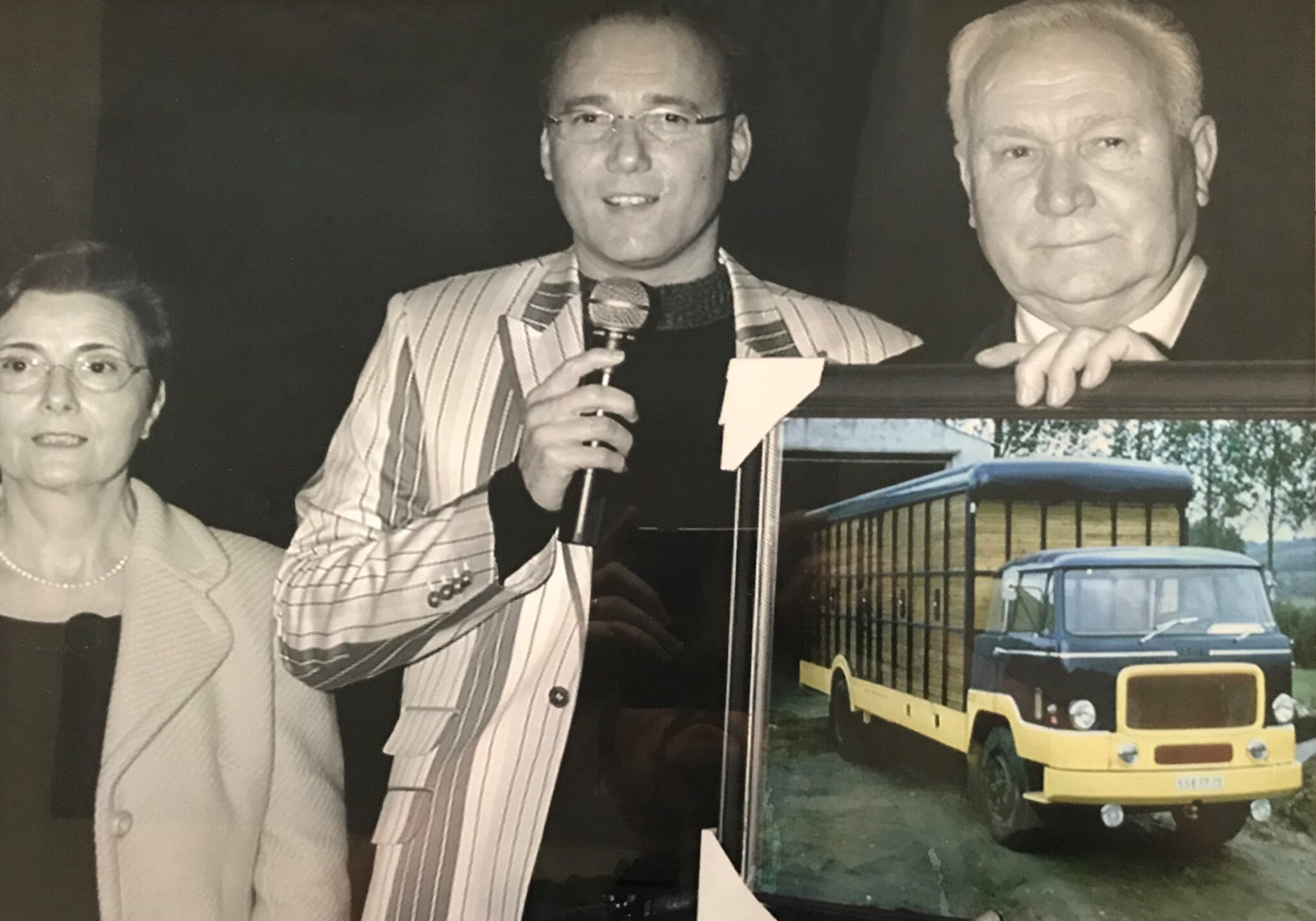
The History of Libner Industrial Bodywork
The Libner story begins on October 1, 1965, in Saint-Lin, with the creation of Joseph Libner heavy truck coachbuilding. Accompanied by his wife, Geneviève, he was joined by his two brothers, Michel and Daniel, as apprentices. Initially, orders were plentiful, but equipment was scarce...
Libner's first projects involved outfitting steel-framed bodies with wooden panels. This was followed by steel and aluminum panel fittings for transporting live animals.
Later, the purchase of a first welding machine allowed the company to take on more orders and diversify.
The young boss had to innovate to stand out, as his brother Daniel emphasized. "Joseph was fearless. He took on all orders, and technical challenges excited him. We even built a promotional truck for fairs," recalls his brother Daniel.
"Our future is in trucks!" Joseph believed. Among his first clients were apple producers like Turpeau from Verruyes, followed by fruit and vegetable wholesalers from Niort, Parthenay, and Saint-Maixent, such as Niort-Primeurs, who ordered wooden vans with metal frames and sheet or tarpaulin roofs for transporting goods in 1965 and 1966.
Joseph later built fixed-deck livestock trucks, notably on Mercedes 1319s, and tarpaulin-covered Berliet-Citroën K-series trucks in 1971 for mills delivering sacks.
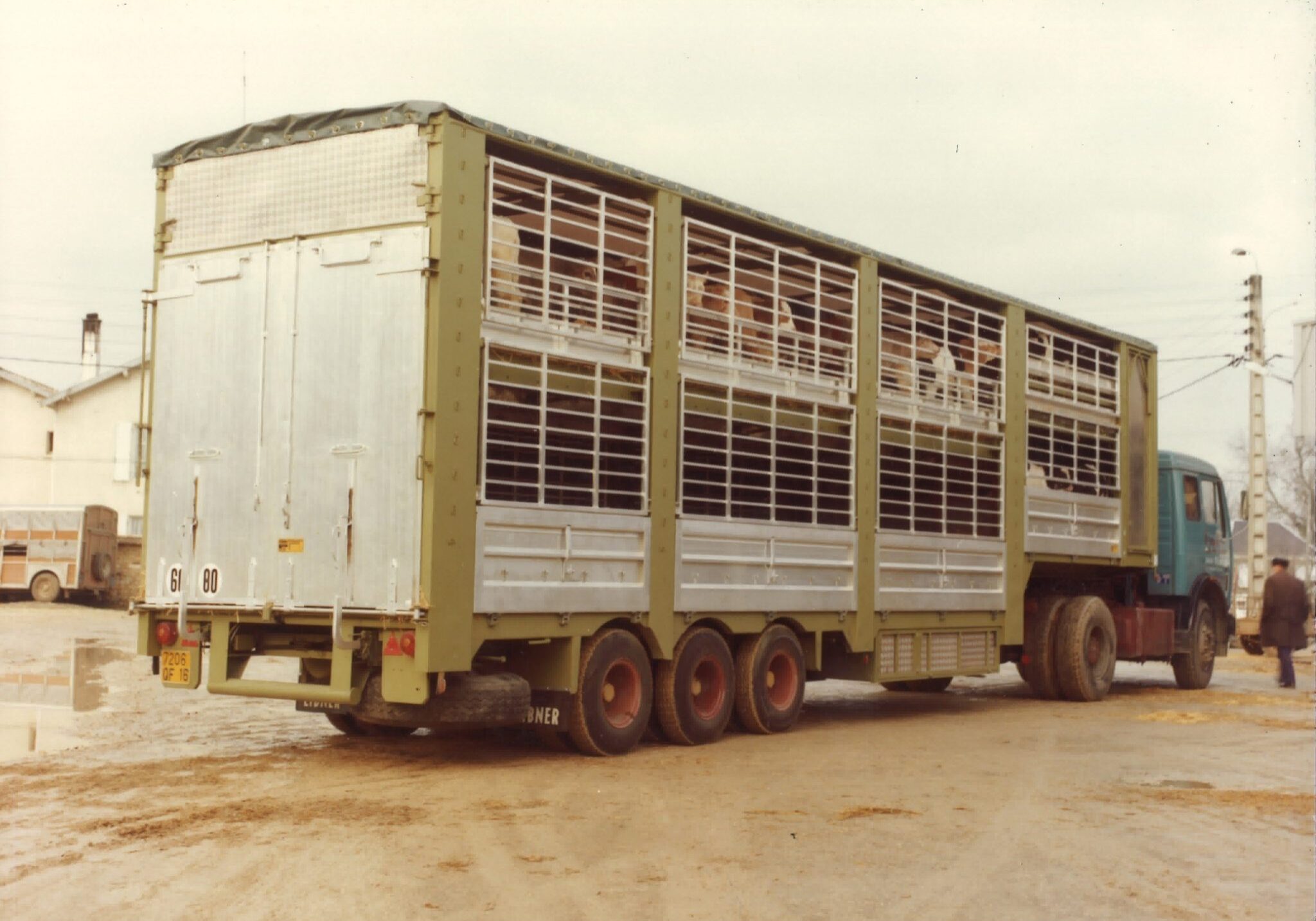
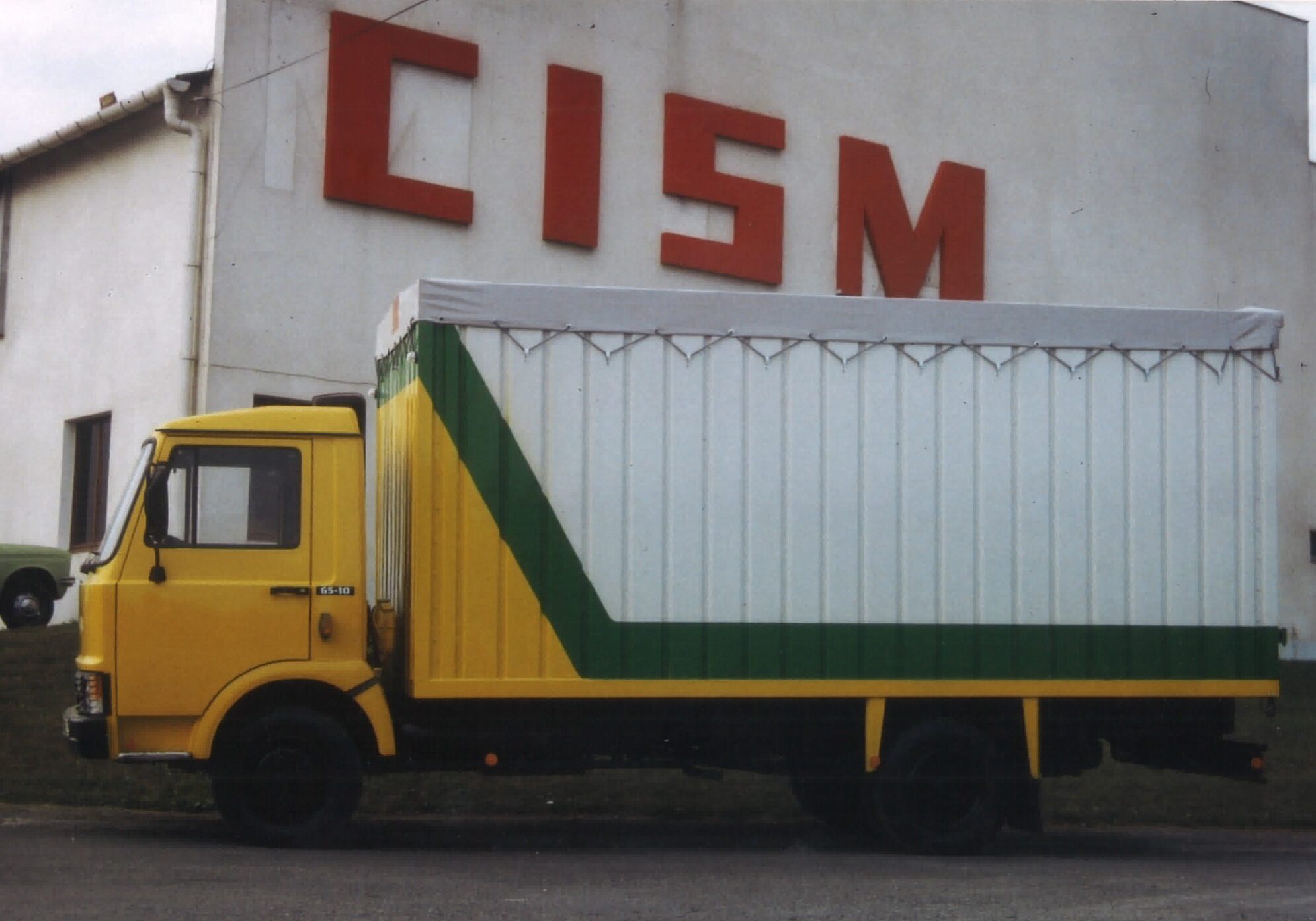
ACCELERATING SPEED
In 1972, with his 14 employees, Joseph Libner began designing mobile boxes to reach a wider range of customers.
To this end, Joseph Libner contacted regional carriers. He studied their constraints and met their needs by offering innovative solutions while optimizing volumes and reducing loading times.
In 1975, Libner proudly celebrated a significant milestone, the assembly of its 100th custom body. This exceptional achievement symbolizes not only the company's technical expertise and commitment to excellence but also its continuous growth.
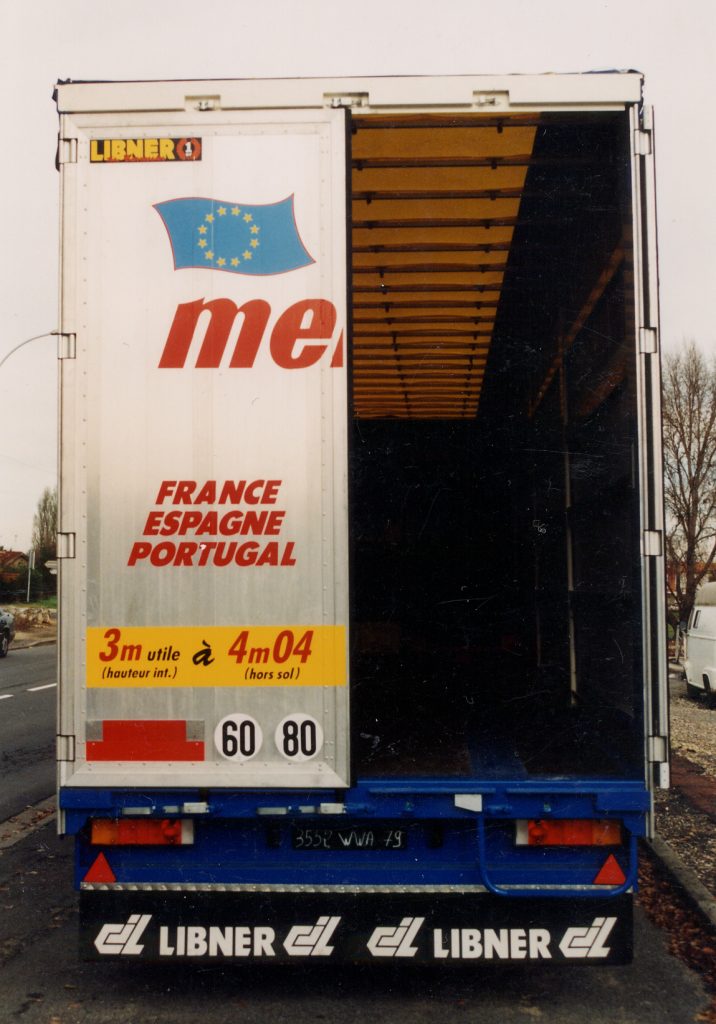
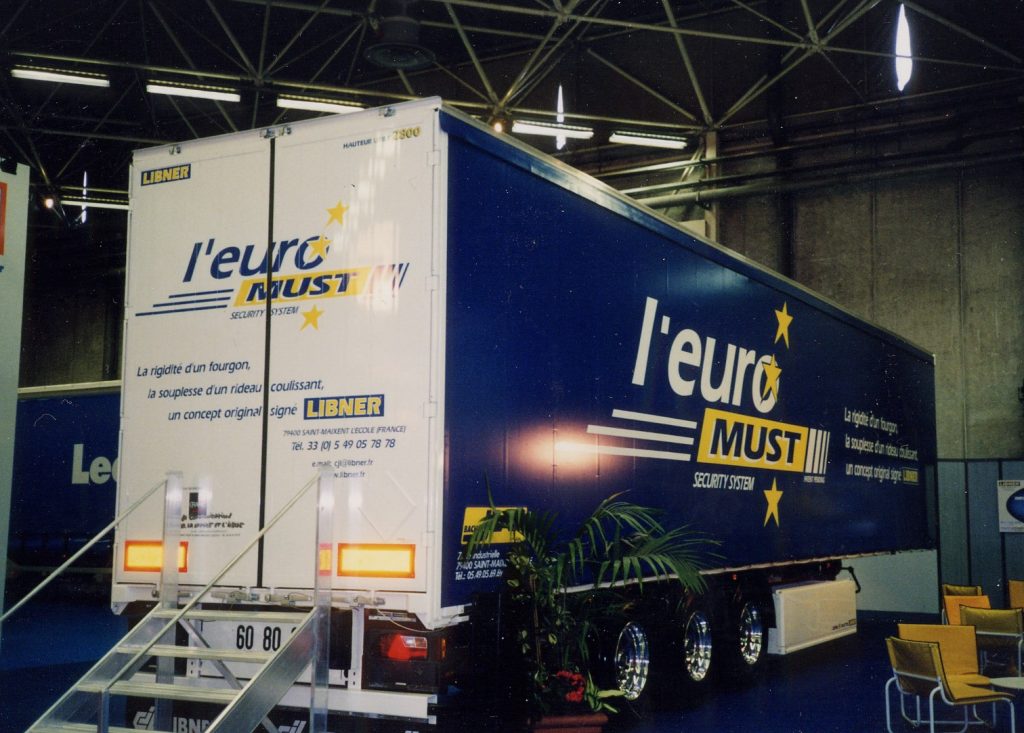
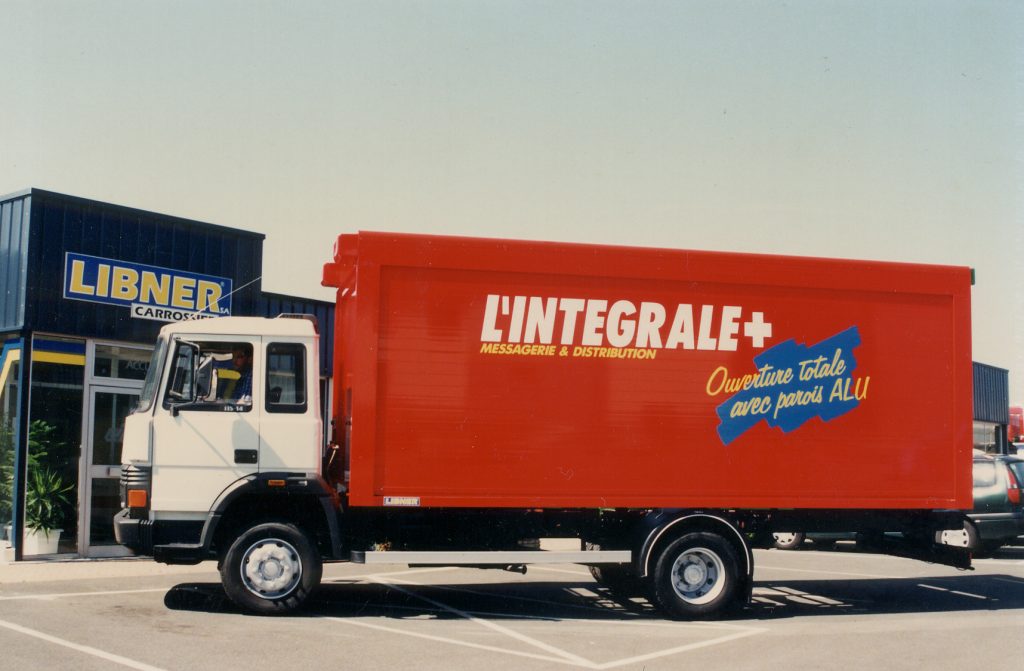
1989, THE YEAR OF POSSIBILITIES
In 1989, the same year the Berlin Wall fell, Libner embarked on developing a wide range of products available in kit form due to export ambitions and growing customer demand.
That year, Libner also undertook a decisive digital transition, marked by the development of a genuine design office. This strategic move demonstrated Libner's determination to stay at the forefront of innovation in the sector by maximizing investments in research and development.
The establishment of this design office provided the company with a dedicated platform for exploring new ideas and designing cutting-edge solutions.
By leveraging technological advances, Libner enhanced its ability to push technical boundaries in the transport sector.
Following the fall of the Berlin Wall, Joseph was the first to establish commercial contacts with Eastern countries, allowing Libner to expand internationally.
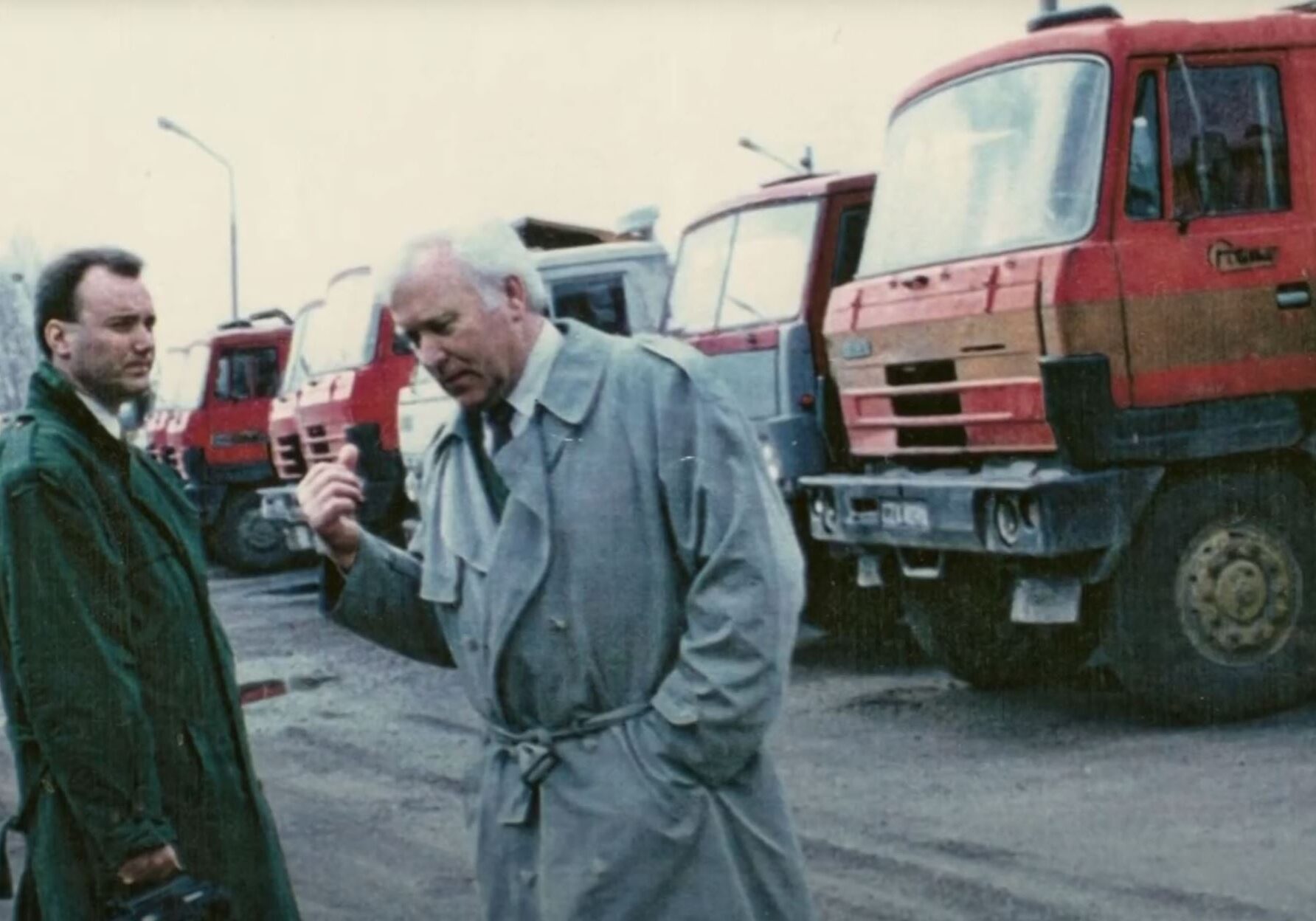
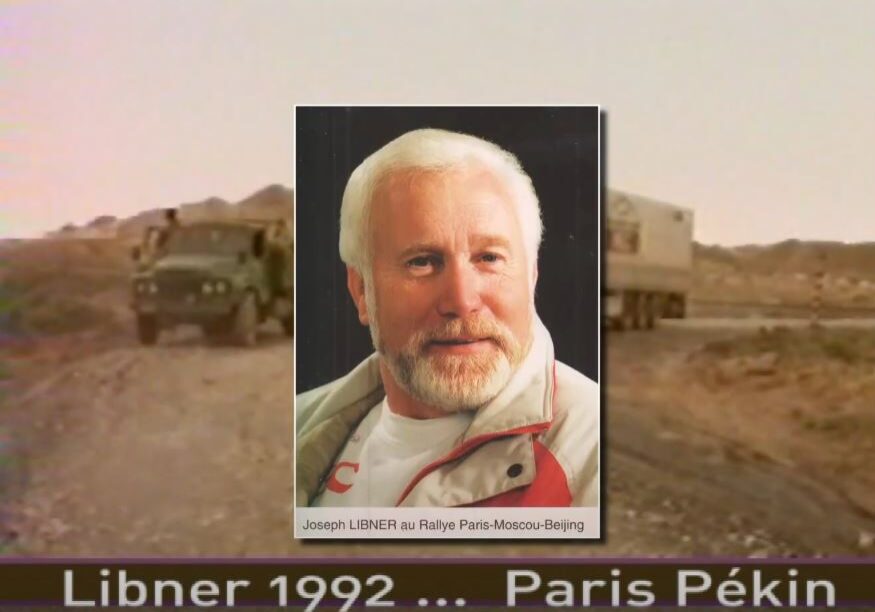
1992, THE YELLOW CRUISE
In 1992, Joseph Libner embarked on a unique challenge, the first Paris-Moscow-Beijing rally raid with 14 truckers and 2 of his friends. Among the participants was René Metge, a French racing driver who had signed a contract with Joseph for this journey.
Pierre Lartigue, a former trucker and future winner of the event driving his ZX, shares this anecdote: "When I saw two conventional semi-trailers towed by 4x2s loading our parts at Citroën-Sport, I was stunned! We knew there were only tracks, stones, sand, and very bad roads between the assistance points!"
Facing numerous technical, meteorological, and human challenges, Joseph's negotiation skills proved crucial.
Indeed, Joseph negotiated for diesel, to pass the semi-trailers one by one on weight-limited ferries over the Volga. To make up for lost time, double crews sometimes drove off-road or 20 hours a day!
The convoy faced deserts eight vehicles wide or single-filed in sandy passages, one after the other, behind Mr. Groine's 4x4! All this before the new Silk Road opened.
The convoy encountered no mechanical problems and stayed on schedule. Joseph entered Beijing on September 27, 1992. Our hero did not realize he had accomplished a true technical and human feat.
Cargo planes like the Russian Antonovs would take over afterward.
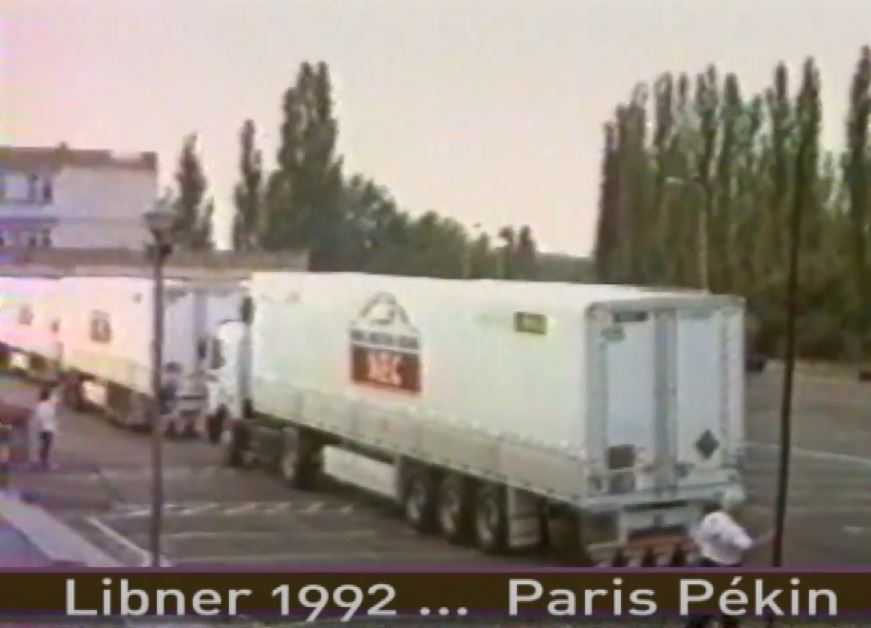
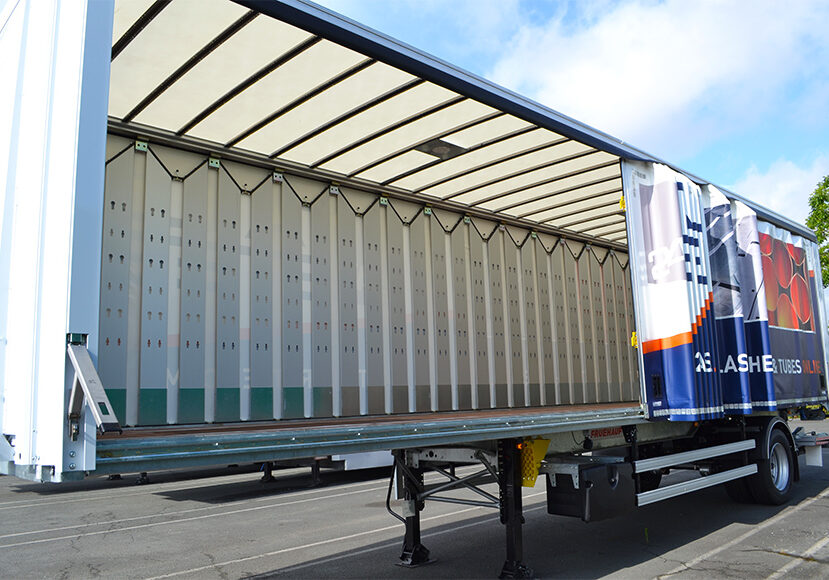
YEAR 2000, THE LAUNCH OF OPENBOX
Hervé Libner, the founder's son, revolutionized the transport world with his new creation, the Openbox, a new concept featuring a body with side curtains attached to aluminum panels, allowing for easy opening and closing.
The Openbox, equipped with sliding aluminum panels, is both robust and easy to use, thanks to its tension and locking handle system, enabling quick and effortless opening and closing. As a result, the merchandise is secured by the rigidity of the side panels and the presence of tie-down points.
THE PATRIARCH PASSES THE TORCH
At 65, the patriarch was still as vigorous as ever. However, in 2005, he decided to step down as CEO, passing the role to François (41 years old), while retaining the chairmanship of the supervisory board.
At the same time, the group expanded with a new subsidiary. After acquiring Bâches Jean (tarpaulin manufacturer), Libspray in Augé (metal treatment and coating), and Gachet-ASM (water treatment), Libner acquired Palkit in Vonnas (01) in 2006. This company specializes in light van kits for carriers, particularly 3.5-ton trucks. Palkit was sold to RESMA in 2023.
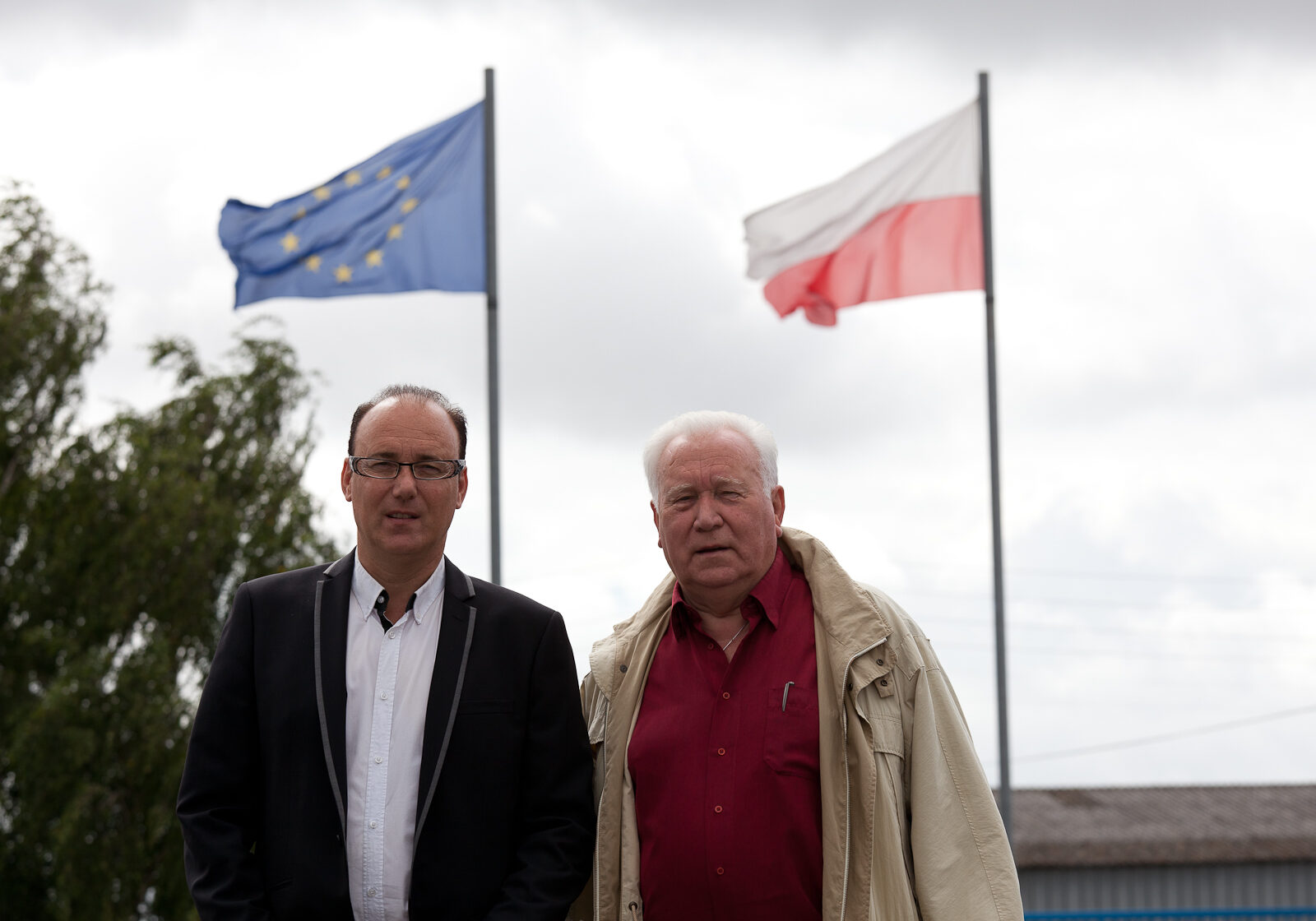
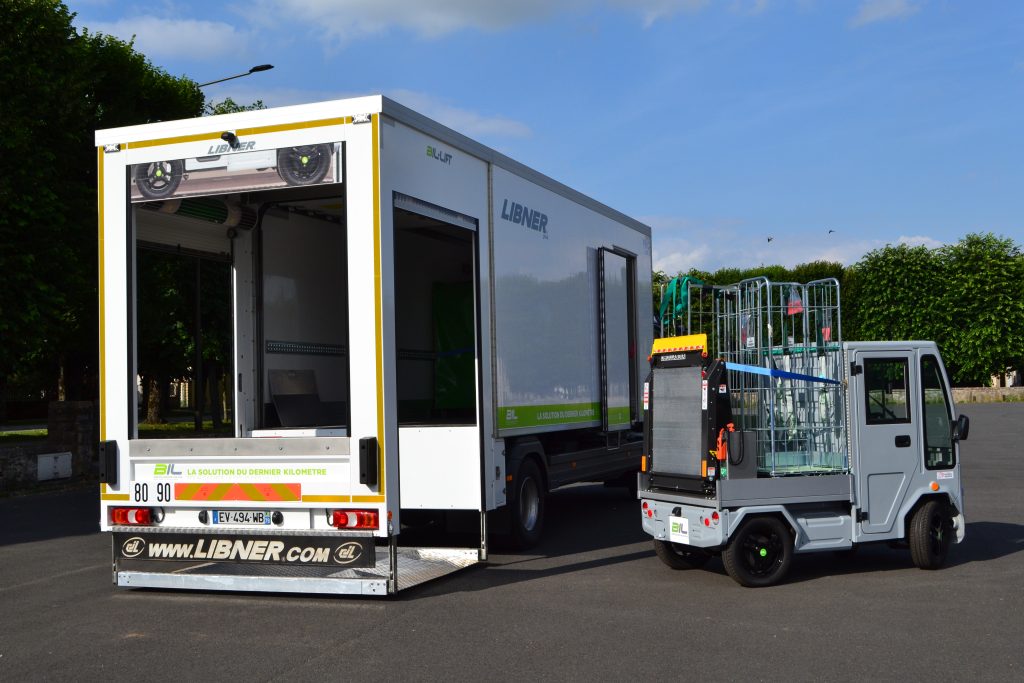
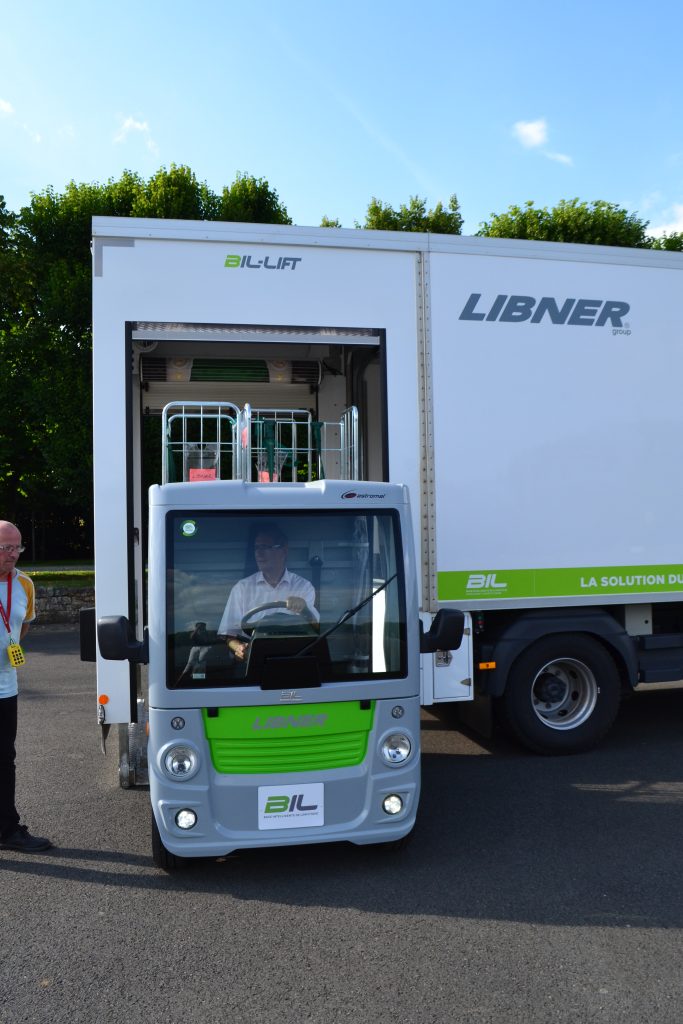
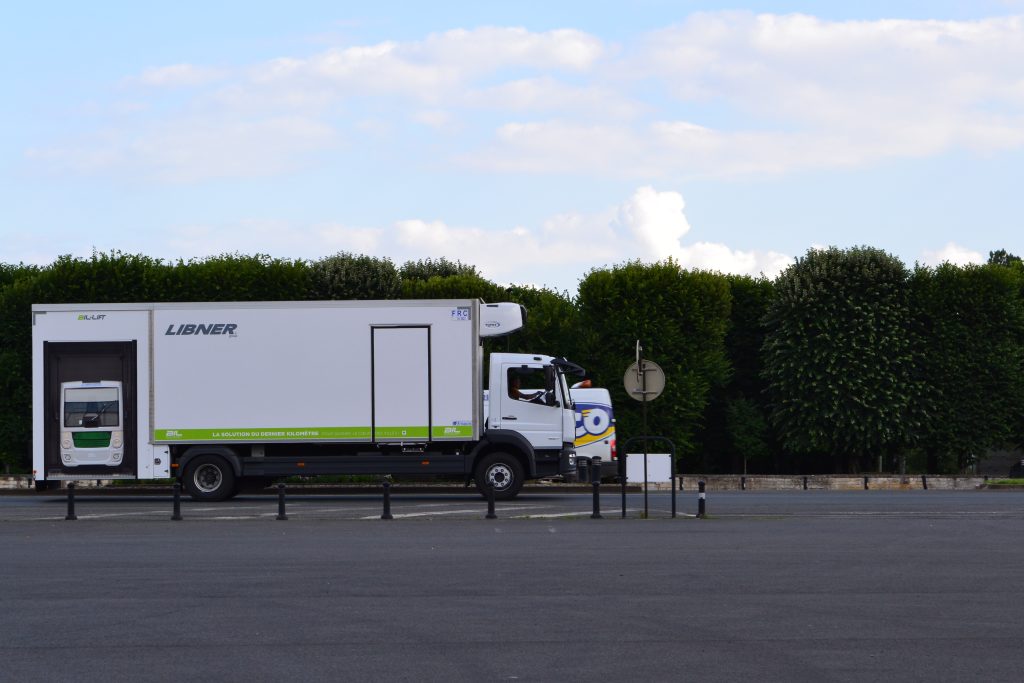
LIBNER INVENTS ECO-DELIVERY
In 2014, Libner demonstrated that it had not lost its sense of initiative by partnering with Central Design and Design Way to create a highly innovative logistics concept called BIL for Intelligent Logistics Base. BIL also stands for the first three letters of the Libner name, or as François Libner jokes, "Good Idea Libner!"
BIL is a small, compact electric vehicle capable of delivering an 800-kilo euro pallet. It descends from a traditional carrier to which it returns for recharging, accessing streets that would otherwise be restricted to combustion vehicles. Joseph recognized that this approach was trendy, noting that Ségolène Royal was nostalgic for her MIA electric vehicle.
Unfortunately, it was an innovation ahead of its time...
THE JOSEPH LIBNER TROPHY
The special Joseph Libner environmental trophy is awarded at each edition of the Solutrans show, a value dear to Joseph Libner, a pioneer of this cause since 2013, as evidenced by the many innovation awards the company has received over the past 30 years.
The two most recent innovation awards were given to Chereau in 2021 and Lecapitaine in 2023, recognizing their commitment to the environment.
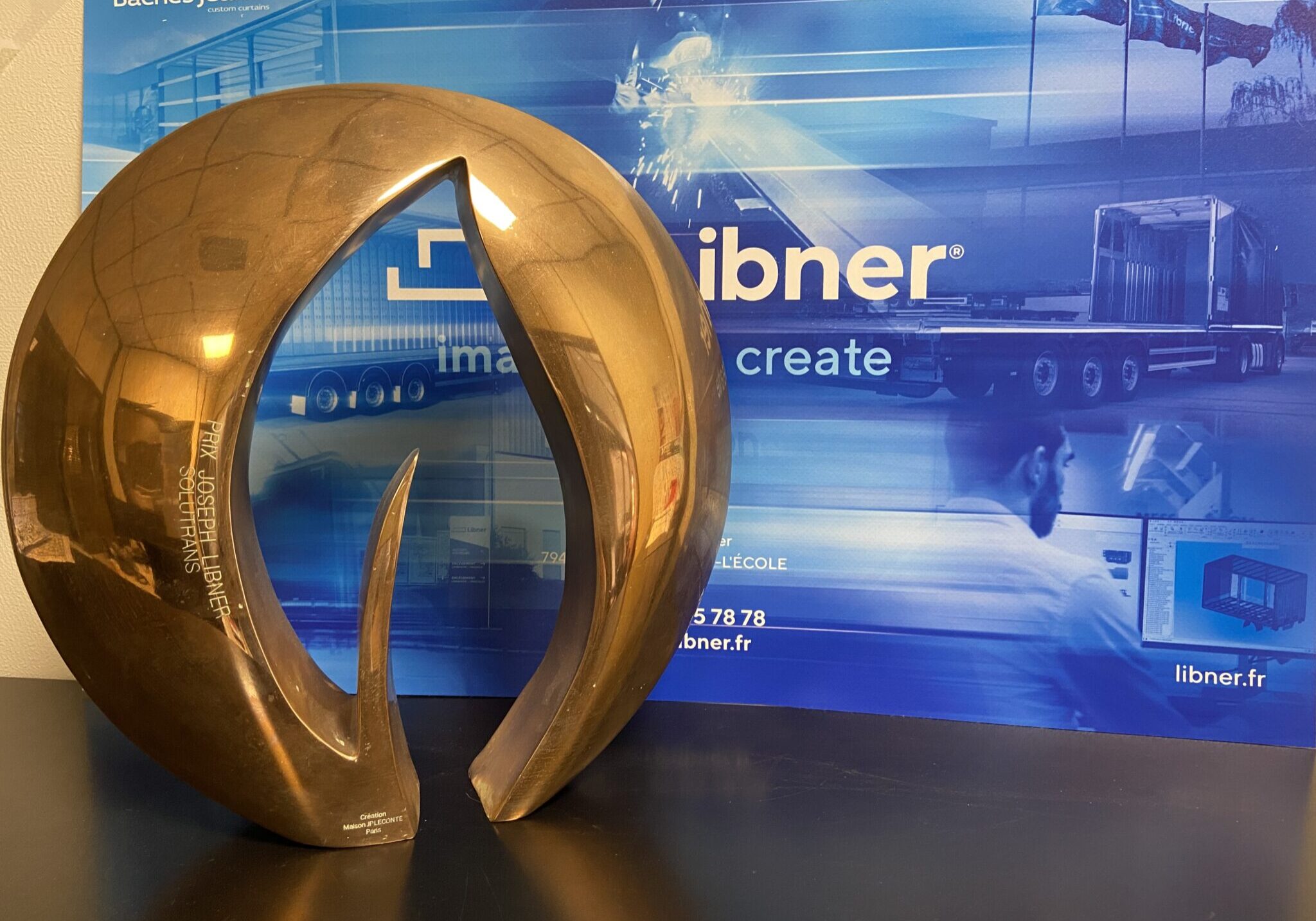
LIBNER, A COMPANY AT THE HEART OF INNOVATION
Libner has always distinguished itself by its involvement and investment in research and development of new solutions. Its achievements? Numerous French and European innovation awards have marked the success of this company, whose primary goal has always been to listen to your needs.
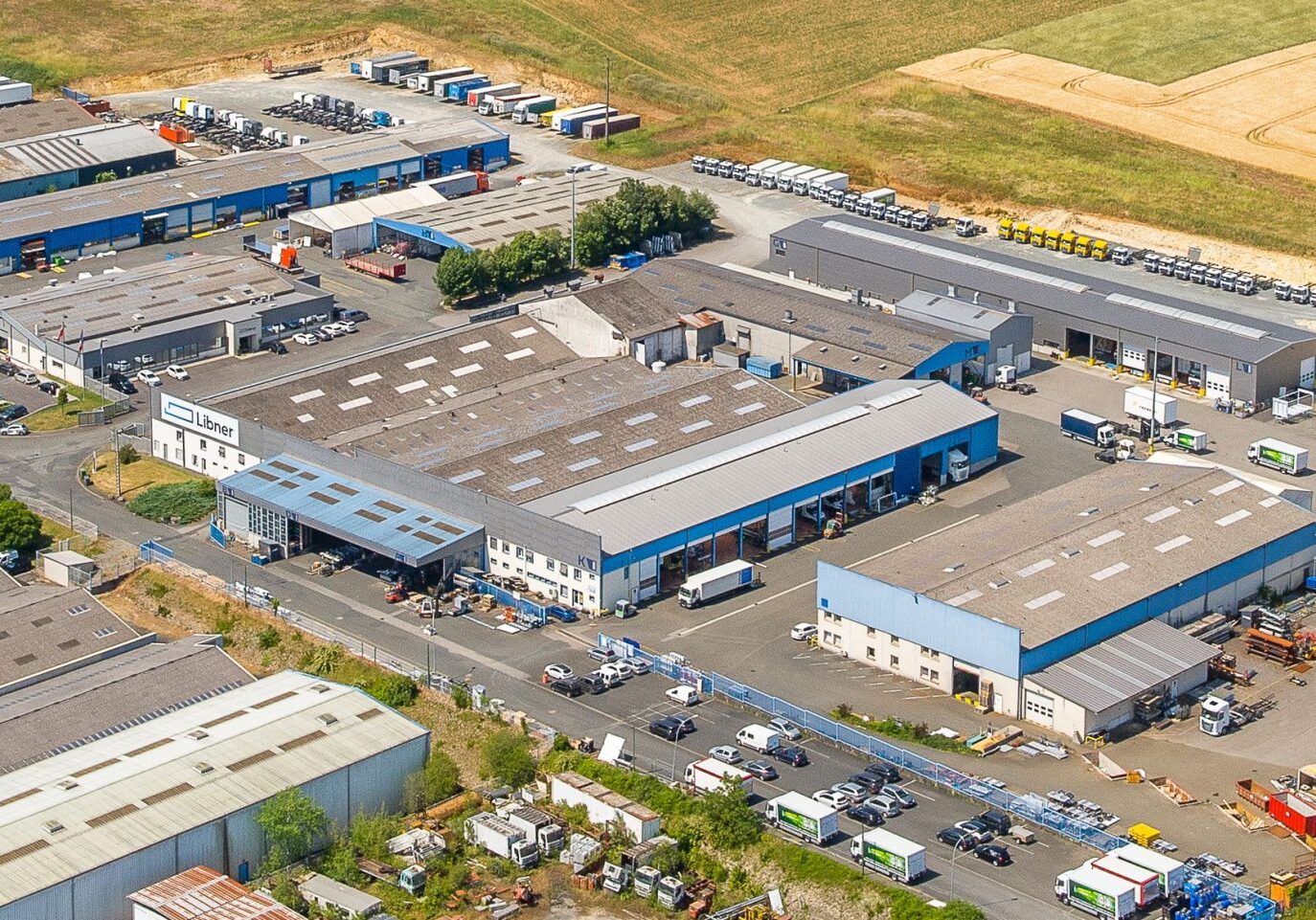
Exploration and creativity
Our commitment to research and development (R&D) paves the way for the continuous exploration of new ideas and innovative concepts.
Product innovation
We view R&D as the driving force behind product innovation. By investing in research, we can develop innovative products that meet emerging market needs.
Competitive advantage
Our sustained commitment to R&D gives us a distinct competitive advantage. By anticipating market trends and introducing unique products, we strengthen our market position while offering unparalleled value to our customers.
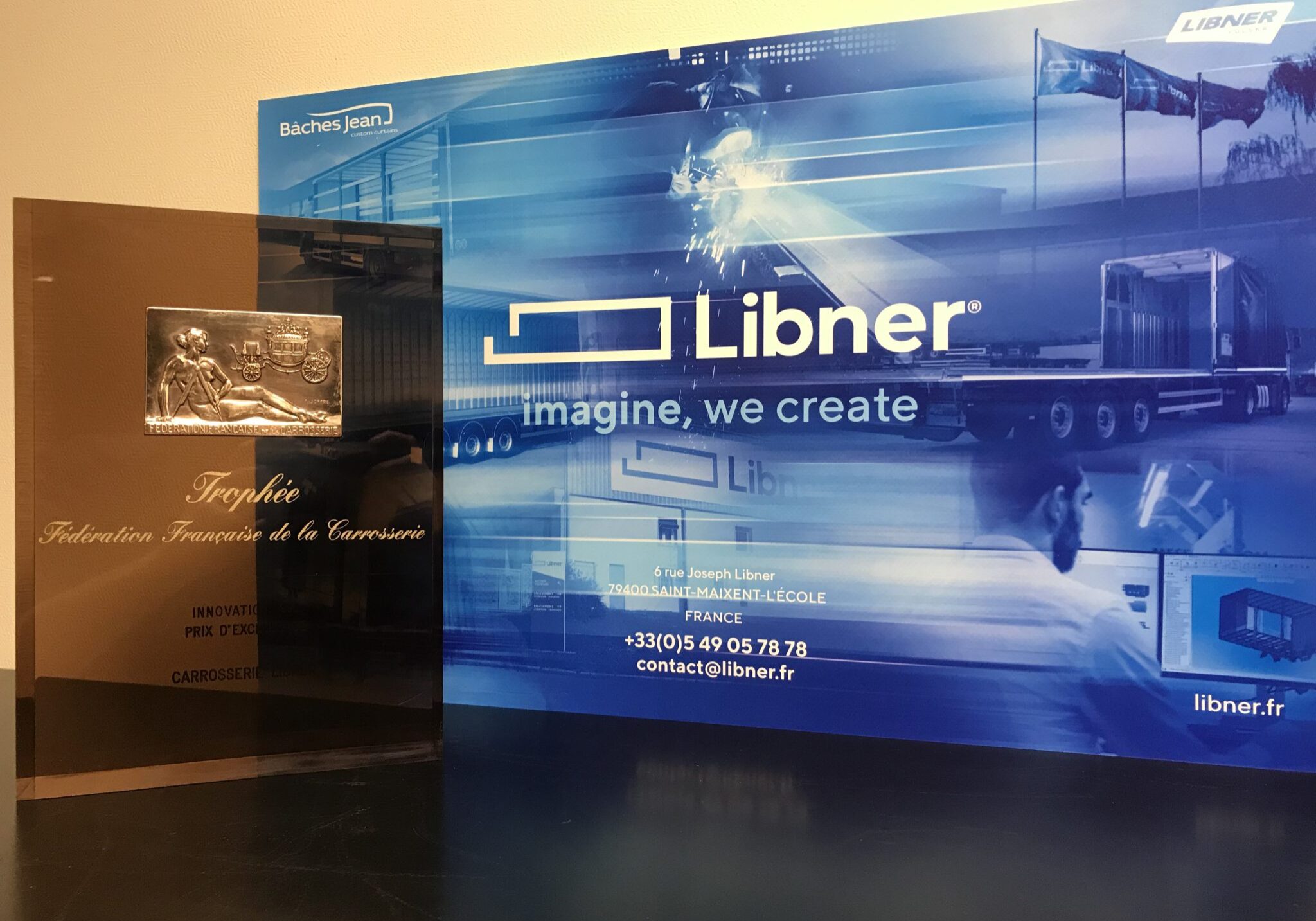
1990: Excellence Award by the French Coachbuilding Federation for the D.Bachomatic+
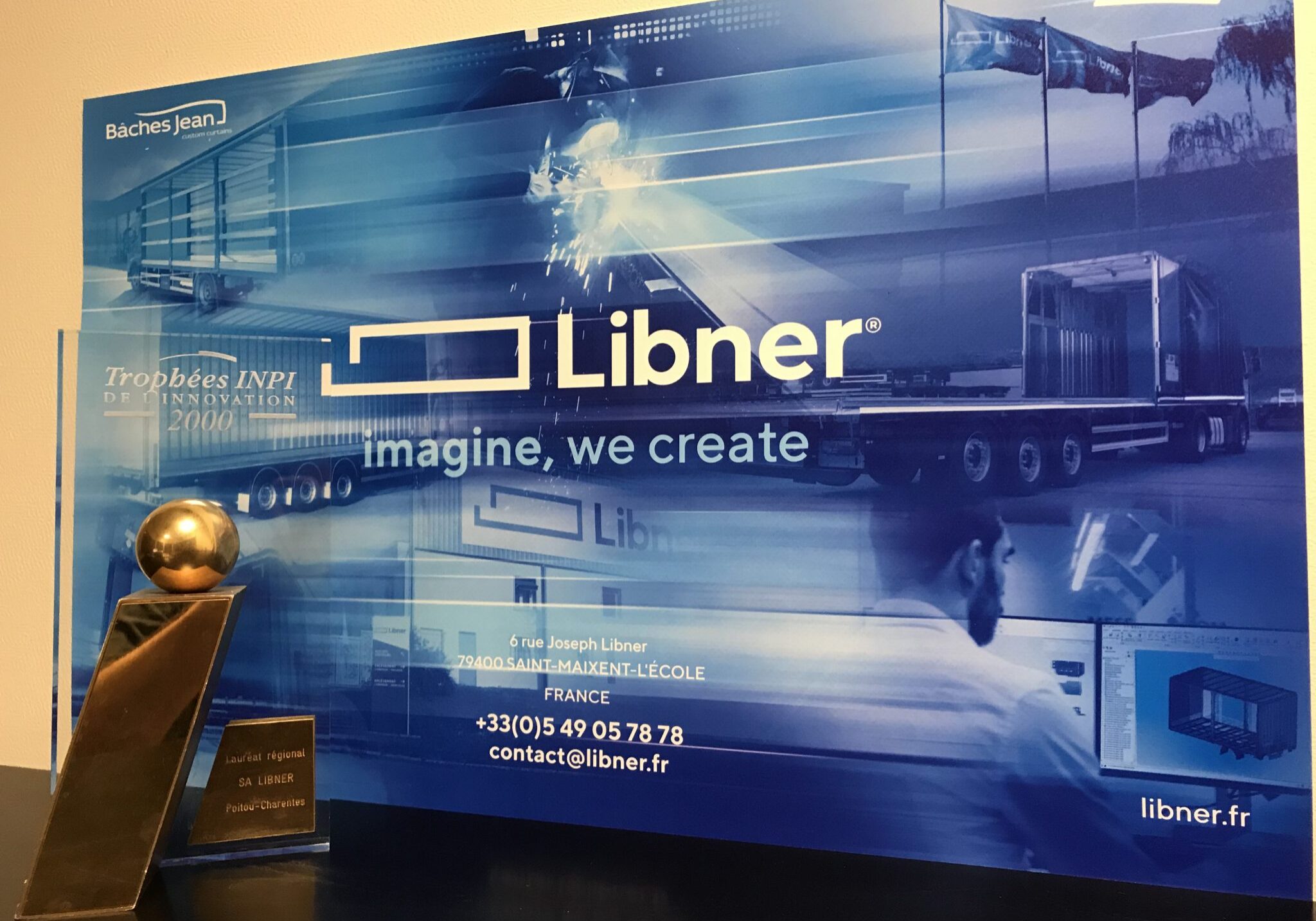
2000: INPI Innovation Trophy, Regional Winner
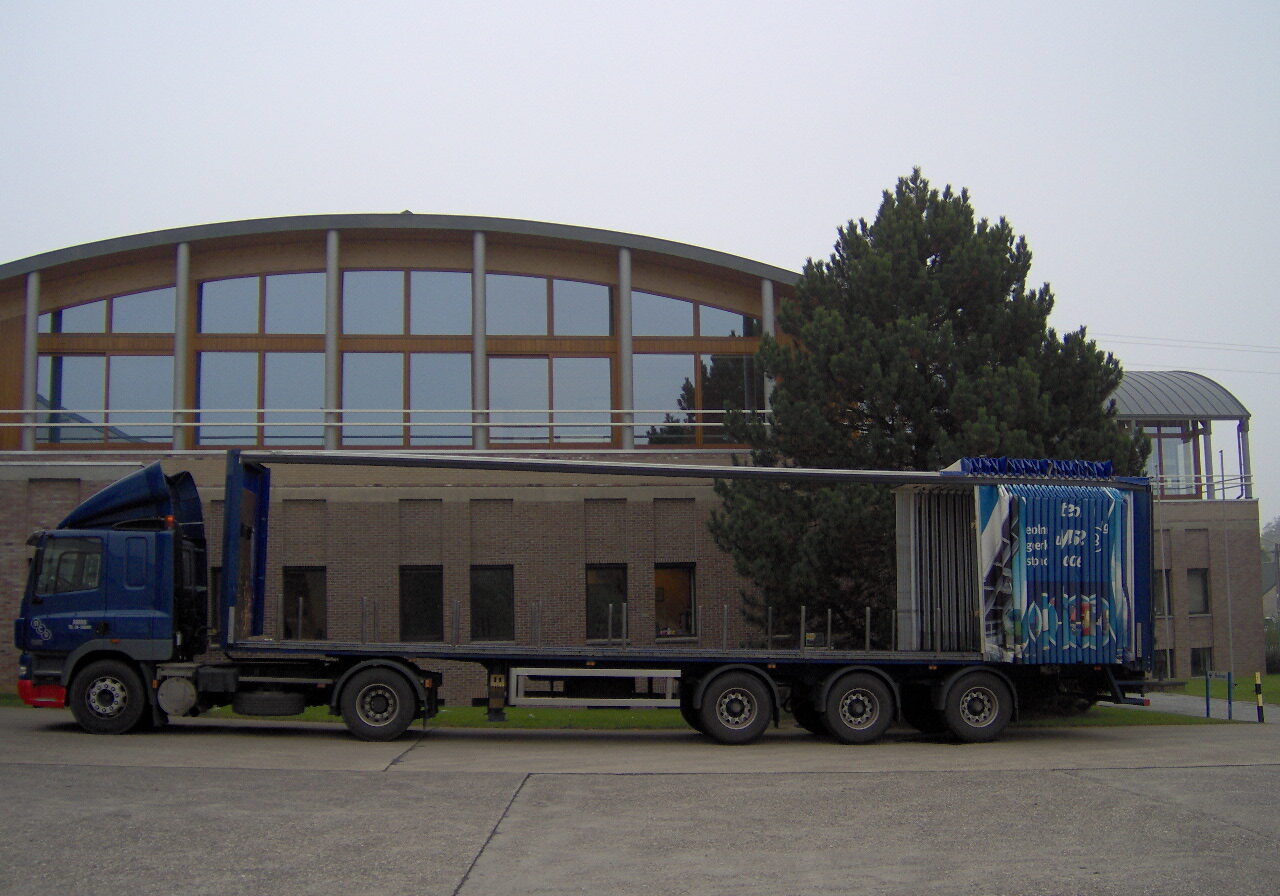
2005: Solutrans Show, 1st Innovation Prize for the Openbox REVOLUTION body
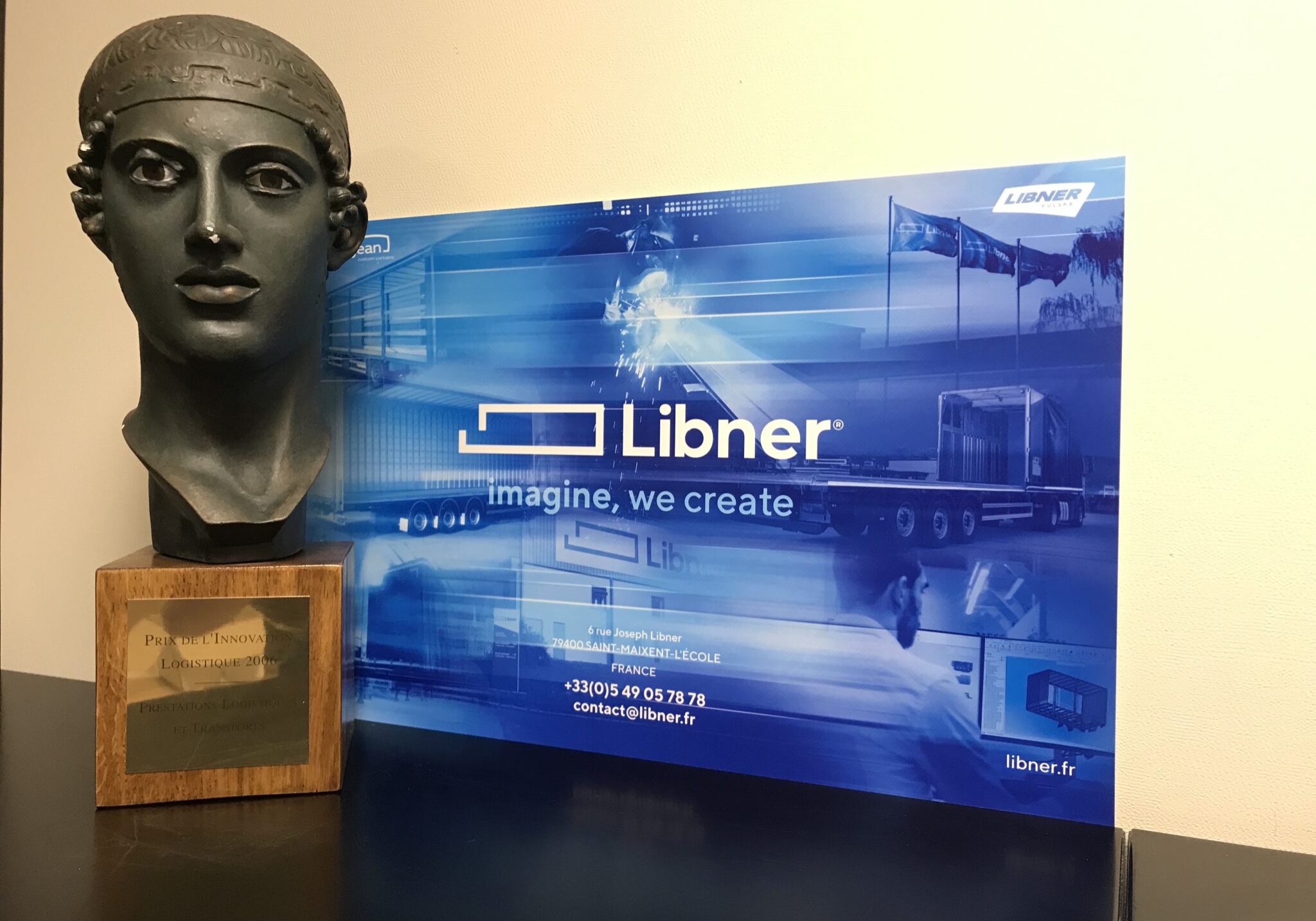
2006: Innovation Award at SITL (Transport & Logistics Innovation Week) for the Openbox C+
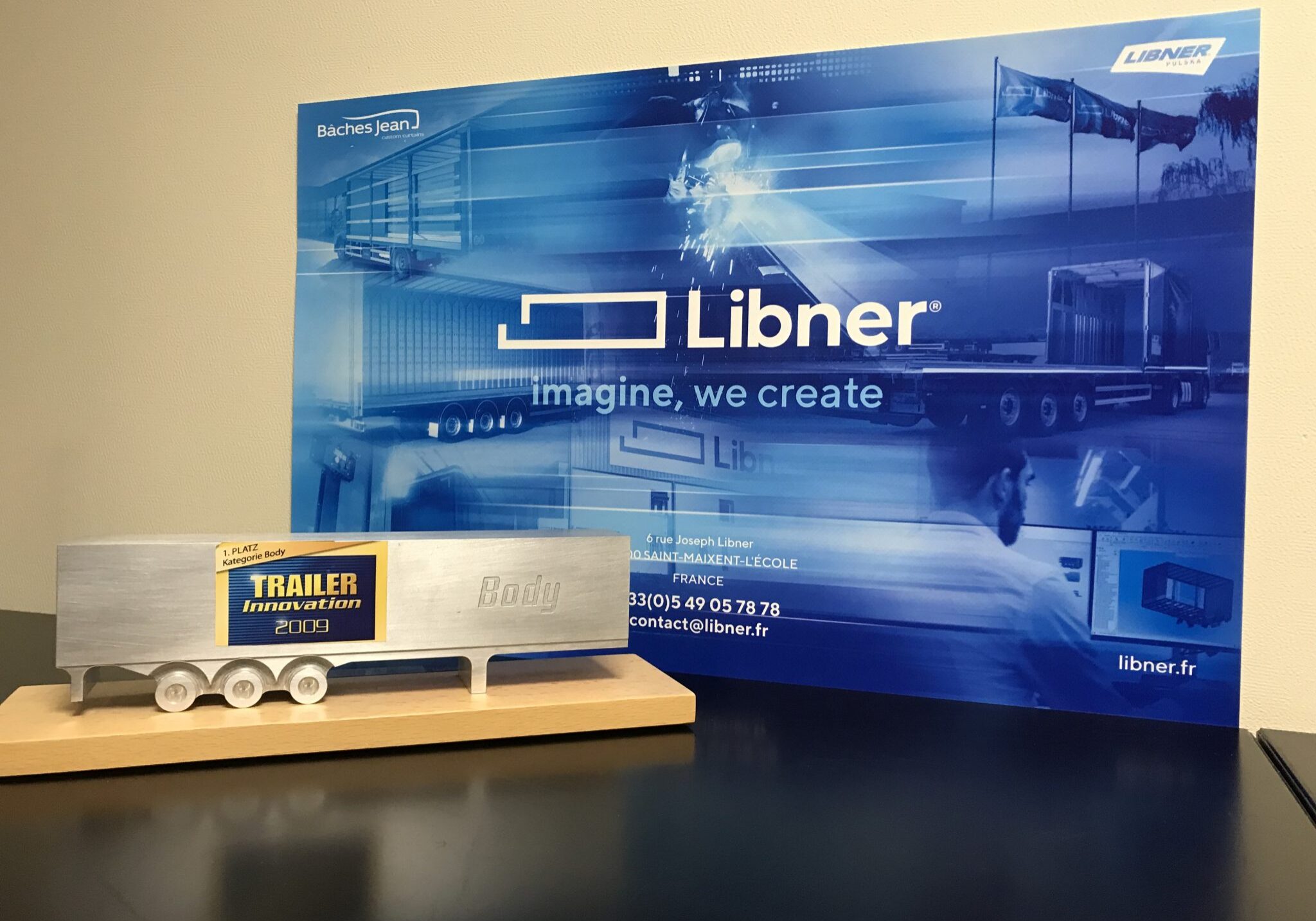
2009: Trailer Innovation Award for the Openbox C+ at the IAA (International Motor Show)
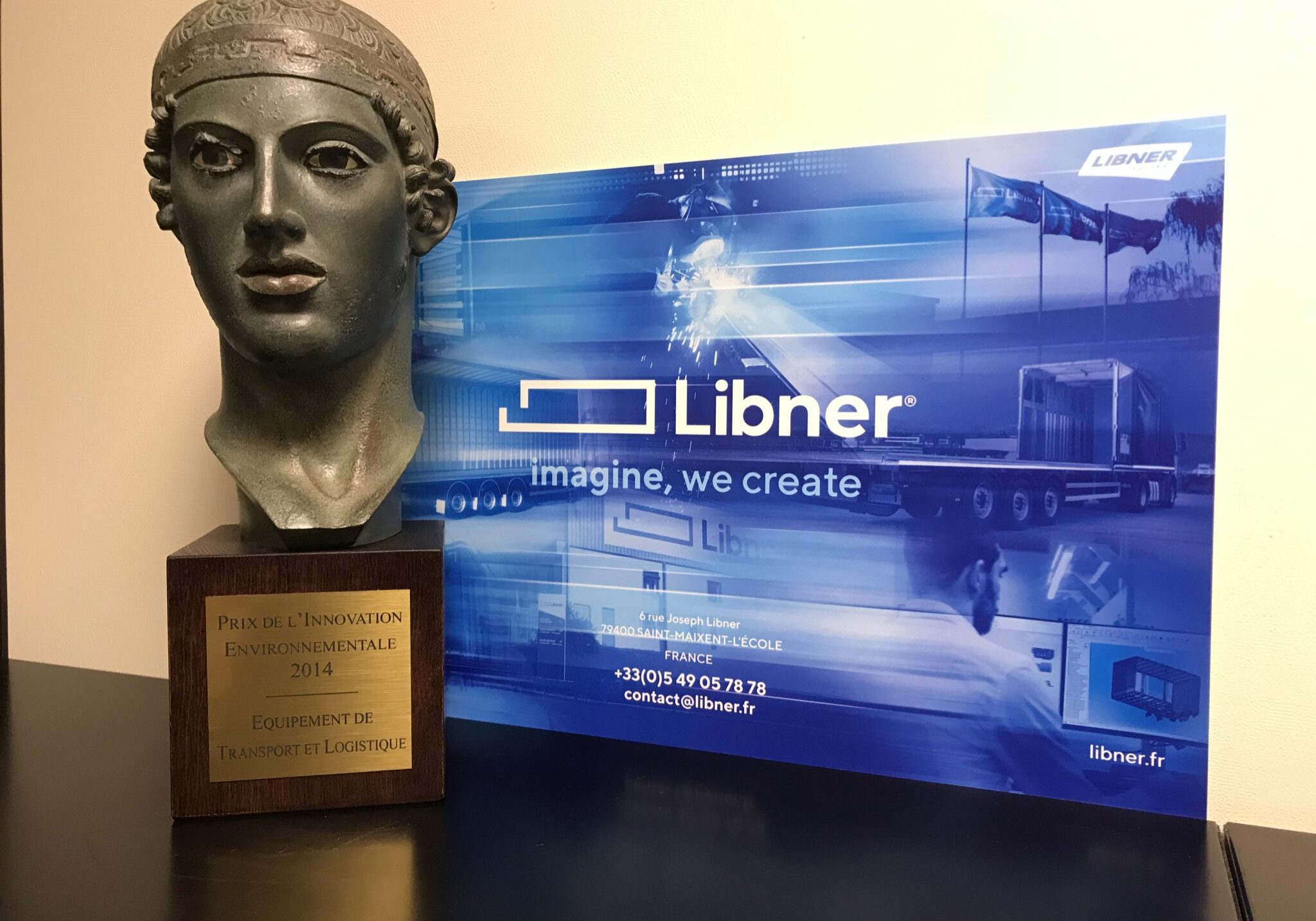
2014: Best Environmental Innovation Award in the Transport & Logistics Equipment category at SITL 2014 with the BIL (Intelligent Logistics Base) concept
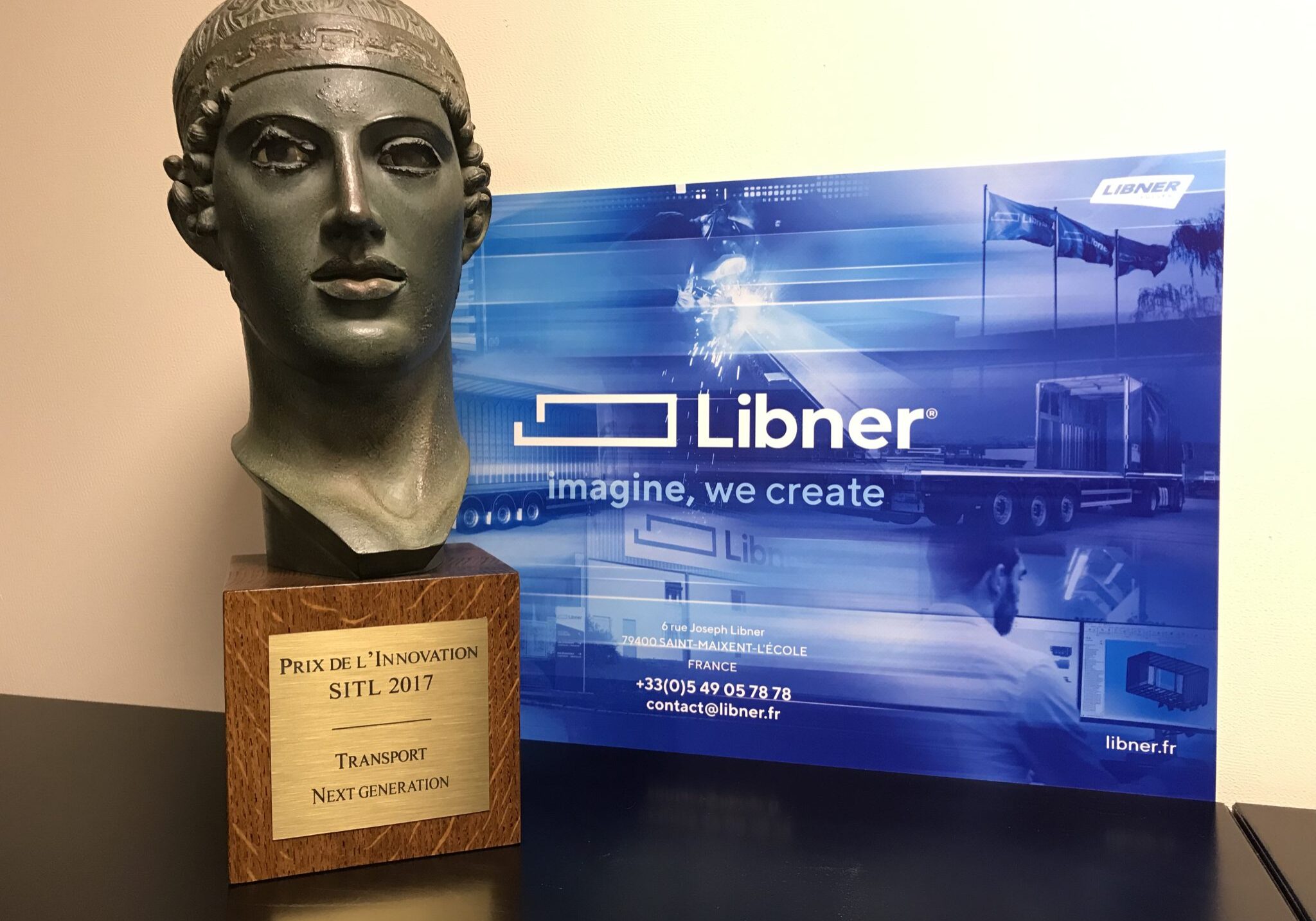
2017: Libner received the Best Transport Equipment Innovation Award at SITL 2017 with the BIL LIFT
LIBNER, MORE THAN A COMPANY, A GROUP...
Pendant son ascension, Libner a eu l'opportunité d'investir et d'acquérir plusieurs entreprises, voici celles qui font partie du groupe à ce jour.
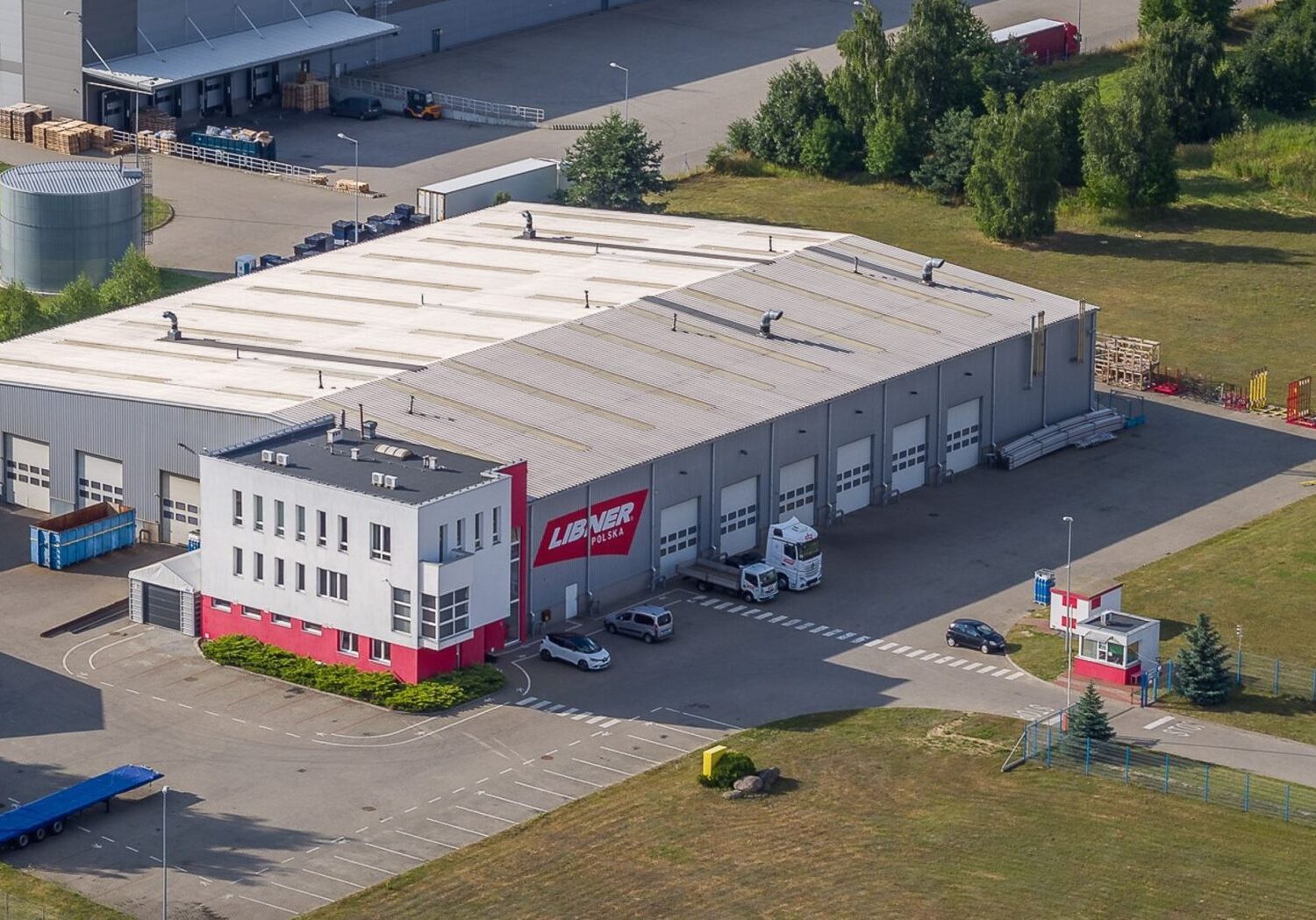
EXPANSION IN EASTERN EUROPE WITH LIBNER POLSKA
Established in Poland since 2008, Libner Polska has become a pillar in Libner's international expansion strategy. With its expertise in mechanical welding and galvanization, Libner Polska offers significant growth opportunities in Eastern European countries.
Investing in Libner Polska reinforces Libner's commitment to effectively serve its customers worldwide.
ACQUISITION OF BÂCHES JEAN
The acquisition of Bâches Jean, a company specializing in the manufacture of high-quality tarpaulins for industrial vehicles, represents a natural extension of Libner's activities.
By integrating Bâches Jean into its portfolio, Libner expands its product range and strengthens its position as a comprehensive supplier of transport solutions.
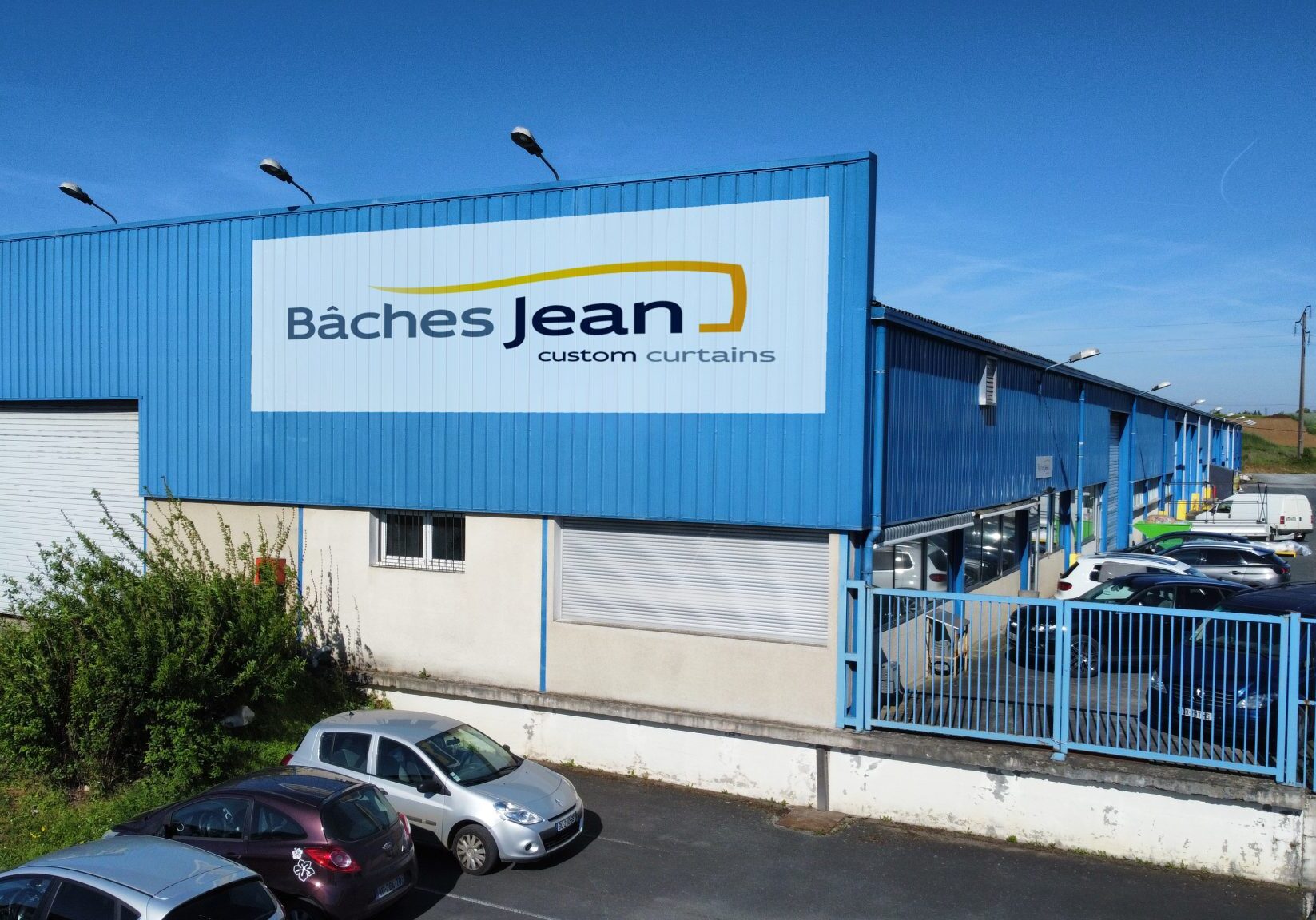
OUR APPROACH, OUR STANDARDS
We take pride in our CSR initiatives, illustrated by our ISO 9001, ISO 26000, and UTAC certifications, demonstrating our commitment to quality, social responsibility, and innovation in all our activities.

ISO 9001
This standard defines requirements for implementing a quality management system for organizations aiming to continually improve customer satisfaction and deliver compliant products and services.
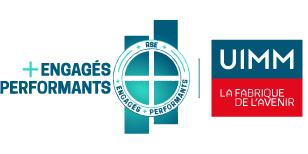
CSR Commitment
In 2023, LIBNER undertook several actions contributing to their CSR objectives:
- Working on material recyclability
- Circular economy: tarp recovery
- Energy savings / energy audit conducted by the Chamber of Commerce and Industry
- Development of bodies for electric trucks
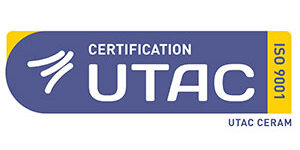
UTAC
Since June 2006, we have been approved as a "Qualified Operator" by UTAC under the November 18, 2005, decree of the Highway Code. This approval allows us to issue the necessary documents to our clients for the registration of new vehicles without prior inspection by the Mines Department.

